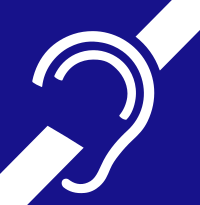
Photo from wikipedia
Objective To compare current mental health symptoms and infant bonding in parents whose infants survived perinatal asphyxia in the last 2 years with control parents and to investigate which sociodemographic, obstetric… Click to show full abstract
Objective To compare current mental health symptoms and infant bonding in parents whose infants survived perinatal asphyxia in the last 2 years with control parents and to investigate which sociodemographic, obstetric and neonatal variables correlated with parental mental health and infant bonding in the asphyxia group. Design Cross-sectional questionnaire survey of parents whose children were registered in the Swiss national Asphyxia and Cooling register and of control parents (Post-traumatic Diagnostic Scale, Hospital Anxiety and Depression Scale, Mother-to-Infant Bonding Scale). Results The response rate for the asphyxia group was 46.5%. Compared with controls, mothers and fathers in the asphyxia group had a higher frequency of post-traumatic stress disorder (PTSD) symptoms (p<0.001). More mothers (n=28, 56%) had a symptom diagnosis of either full or partial PTSD than controls (n=54, 39%) (p=0.032). Similarly, more fathers (n=31, 51%) had a symptom diagnosis of either partial or full PTSD than controls (n=19, 33%) (p=0.034). Mothers reported poorer bonding with the infant (p=0.043) than controls. Having a trauma in the past was linked to more psychological distress in mothers (r=0.31 (95% CI 0.04 to 0.54)) and fathers (r=0.35 (95% CI 0.05 to 0.59)). For mothers, previous pregnancy was linked to poorer bonding (r=0.41 (95% CI 0.13 to 0.63)). In fathers, therapeutic hypothermia of the infant was related to less frequent PTSD symptoms (r=−0.37 (95% CI −0.61 to −0.06)) and past psychological difficulties (r=0.37 (95% CI 0.07 to 0.60)) to more psychological distress. A lower Apgar score was linked to poorer bonding (r=−0.38 (95% CI −0.64 to −0.05)). Conclusions Parents of infants hospitalised for perinatal asphyxia are more at risk of developing PTSD than control parents.
Journal Title: BMJ Paediatrics Open
Year Published: 2017
Link to full text (if available)
Share on Social Media: Sign Up to like & get
recommendations!